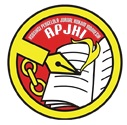SHARIA FINANCIAL LITERACY AND INCLUSION: OPPORTUNITIES AND CHALLENGES
(1) UIN Prof KH Saifuddin Zuhri
(2) UIN Prof KH Saifuddin Zuhri
(*) Corresponding Author
Abstract
Abstract
Financial literacy and inclusion are indicators of a country's economic growth. If a country's level of financial literacy and inclusion is high, then the country can be said to be a developed country. This research aims to identify opportunities and challenges in efforts to increase the sharia financial literacy and inclusion index. This research uses the Systematic Literature Review (LSR) method with a descriptive approach. The results of this research show that the opportunities for financial literacy and inclusion include; Indonesia's demographic conditions which are dominated by Generation Z and millennials, the 2024 National Digital Transformation Program, high levels of education, the popularity of financial products and services, numerous and widespread sources of information (the presence of finfluencers), increased GDP per capita. Meanwhile, the challenges faced include; the increasing number and complexity of financial products and services, the threat of cyber crime, global economic conditions, the diversity of Indonesia's demographics, and the vastness of Indonesia's territory.
Keyword: Financial literacy; Financial Inclussion; Opportunity; Challenge.
Â
Full Text:
PDFReferences
Anwar, K., & Amri. (2017). Pengaruh Inklusi Keuangan Terhadap PDB Indonesia. Jurnal Ilmiah Mahasiswa (JIM), 2(3), 454–462.
BPS. (2023a). Ekonomi Indonesia Tahun 2022 Tumbuh 5,31 Persen. https://www.bps.go.id/pressrelease/2023/02/06/1997/ekonomi-indonesia-tahun-2022-tumbuh-5-31-persen.html
BPS. (2023b). Jumlah Penduduk Pertengahan Tahun (Ribu Jiwa), 2021-2023. Badan Pusat Statistik. https://www.bps.go.id/indicator/12/1975/1/jumlah-penduduk-pertengahan-tahun.html
Chalkiadaki, A. (2018). A Systematic Literature Review of 21st Century Skills and Competencies in Primary Education. International Journal of Instruction, 11(3), 1–16.
Cheng, X., & Degryse, H. (2010). The Impact of Bank and Non-Bank Financial Institutions on Local Economic Growth in China. J Financ Serv Res Springer, 179–199.
Databoks. (2023). 10 Negara dengan Jumlah Populasi Muslim Terbanyak Dunia (2023). Katadata. https://databoks.katadata.co.id/datapublish/2023/10/19/10-negara-dengan-populasi-muslim-terbanyak-dunia-2023-indonesia-memimpin
Fenwick, J., Sidebotham, M., Gamble, J., & Creedy, D. K. (2018). The emotional and professional wellbeing of Australian midwives: A comparison between those providing continuity of midwifery care and those not providing continuity. Women Birth, 31(1), 38–43.
Gerdeva, A., & Rhyne, E. (2011). Opportunities ond Obstacles to Financial Inclusion. Center of Financial Inclusion at ACCION International, 12.
Kusuma, M., Narulitasari, D., & Nurohman, Y. A. (2022). Inklusi Keuangan Dan Literasi Keuangan Terhadap Kinerja Dan Keberlanjutan Umkm Disolo Raya. Among Makarti, 14(2), 62–76. https://doi.org/10.52353/ama.v14i2.210
Mason, C. L. J., & Wilson, R. M. S. (2000). Conceptualising Financial Literacy. Business School Research Series.
Nasir Tajul Aripin, Nur Fatwa, & Mulawarman Hannase. (2022). Layanan Digital Bank Syariah Sebagai Faktor Pendorong Indeks Literasi dan Inklusi Keuangan Syariah. Syarikat: Jurnal Rumpun Ekonomi Syariah, 5(1), 29–45. https://doi.org/10.25299/syarikat.2022.vol5(1).9362
Novieningtyas, A. (2018). Pentingnya Edukasi Literasi Keuangan Sejak Dini. MANNERS, 1(2), 133–137. http://hdl.handle.net/123456789/7861
OECD. (2017). PISA 2015 Assessment and Analytical Framework: Science, Reading, Mathematic, Financial Literacy and Collaborative Problem Solving. OECD Publishing. https://doi.org/https://doi.org/10.1787/9789264281820-en
POJK Nomor 76/POJK.07/2016 PENINGKATAN LITERASI DAN INKLUSI KEUANGAN DI SEKTOR JASA KEUANGAN BAGI KONSUMEN DAN/ATAU MASYARAKAT, (2016).
OJK. (2017). Strategi Nasional Literasi Keuangan Indonesia.
OJK. (2021). Strategi Nasional Literasi Keuangan Indonesia (SNLKI) 2021 - 2025. In Otoritas Jasa Keuangan. https://www.ojk.go.id/id/berita-dan-kegiatan/publikasi/Pages/Strategi-Nasional-Literasi-Keuangan-Indonesia-2021-2025.aspx
OJK. (2022). SIARAN PERS: SURVEI NASIONAL LITERASI DAN INKLUSI KEUANGAN TAHUN 2022. Otoritas Jasa Keuangan. https://ojk.go.id/id/berita-dan-kegiatan/siaran-pers/Pages/Survei-Nasional-Literasi-dan-Inklusi-Keuangan-Tahun-2022.aspx
OJK. (2023). Hasil Survei Nasional Literasi dan Inklusi Keuangan (SNLIK) Tahun 2022.
Rainer, P. (2023). Sensus BPS: Saat Ini Indonesia Didominasi Oleh Gen Z. Goodstats. https://data.goodstats.id/statistic/pierrerainer/sensus-bps-saat-ini-indonesia-didominasi-oleh-gen-z-n9kqv
Rusdianasari, F. (2018). Peran Inklusi Keuangan melalui Integrasi Fintech dalam Stabilitas Sistem Keuangan Indonesia. Jurnal Ekonomi Kuantitatif Terapan, 11(2), 244–253.
Saputra, R. S., & Dewi, A. . (2017). Peran Modal Sosial Sebagai Mediator Literasi Keuangan Dan Inklusi Keuangan Pada Kaum Muda Di Indonesia (Studi Kasus Pada Komunitas Investor Saham Pemula). Jurnal Manajemen Teori Dan Terapan Tahun, 10.
Sari, P. B., & Dwilita, H. (2018). Prospek Financial Technology (Fintech) Di Sumatera Utara Dilihat Dari Sisi Literasi Keuangan, Inklusi Keuangan Dan Kemiskinan. Kajian Akuntansi, 19(1), 9–18.
Shabri, H., Azlina, N., & Said, M. (2023). Transformasi Digital Industri Perbankan Syariah Indonesia. Jurnal El - Kahfi (Journal of Islamic Economic), 3(2), 1–7.
Sugiyono. (2018). Metode Penelitian Kuantitatif, Kualitatif dan R&D. Alfabeta.
Tegar Febrianto, G., Ghulam Ahmad, F., & Arifin, I. (2020). Peran Komunitas Dalam Meningkatkan Literasi Dan Inklusi Keuangan Syariah. Al-Mutharahah: Jurnal Penelitian Dan Kajian Sosial Keagamaan, 17(1), 130–150. https://doi.org/10.46781/al-mutharahah.v17i1.77
Wijaya, C., Kardinal, & Cholid, I. (2018). Analisis Pengaruh Usia, Jenis Kelamin, Pendidikan, Dan Pendapatan, Terhadap Literasi Keuangan Warga Di Komplek Tanah Mas (pp. 1–5). core.ac.uk
Wirjawan, G. (2023). Claudia Kolonas: Investment Myth, Finfluencers, and The AI. Endgame.
Worldbank. (2014). Financial Inclussion. Worldbank. www.worldbank.org
Yushita, A. N. (2017). Pentingnya Literasi Keuangan Bagi Pengelolaan Keuangan Pribadi. Nominal, Barometer Riset Akuntansi Dan Manajemen, 6(1). https://doi.org/10.21831/nominal.v6i1.14330
DOI: 10.24235/jm.v8i2.15406
Article Metrics
Abstract view : 61 timesPDF - 14 times
Refbacks
- There are currently no refbacks.





